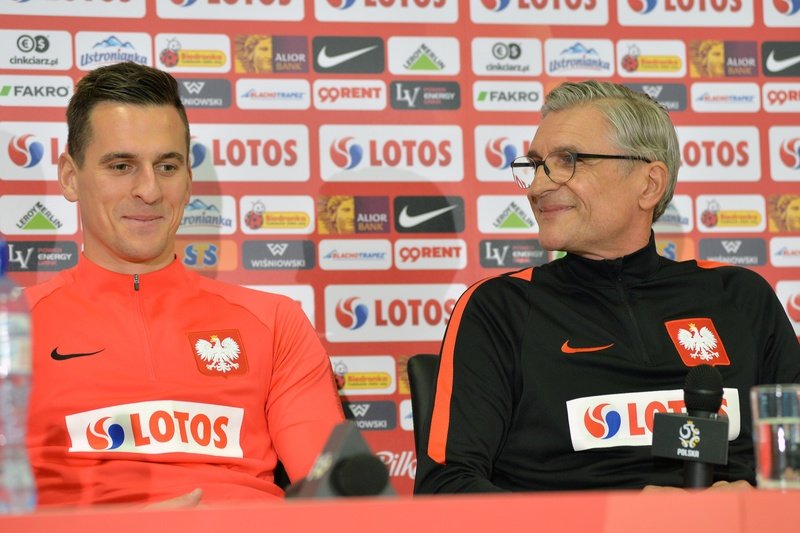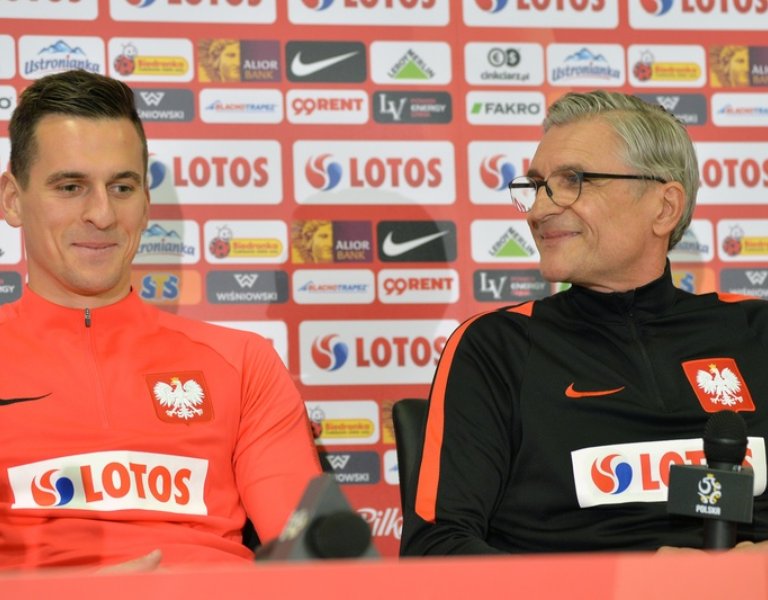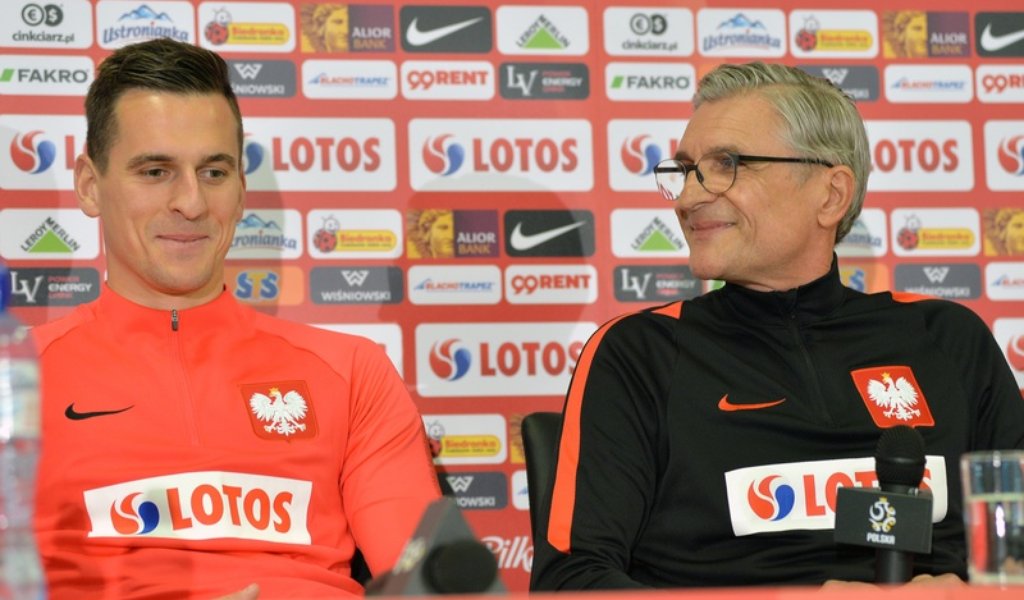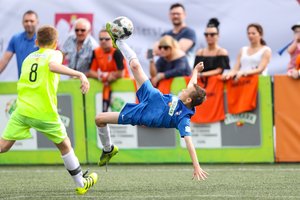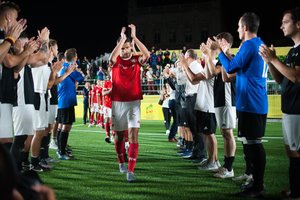Arkadiusz Milik: Being Ronaldo
Arkadiusz Milik’s career is flourishing, but it could have done so much sooner, were it not for two injuries and one failed transfer.
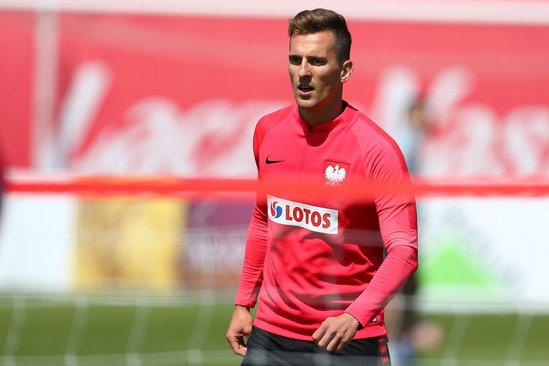 November 2012. Warsaw Polonia v. Górnik Zabrze. At the time it was a top first division game. The “Black Shirts” came in second, leading by three points over Górnik in fourth place. Both clubs owed a lot to their young forwards: Polonia to Łukasz Teodorczyk, 21 at the time, and Górnik to Milik, just 18.
November 2012. Warsaw Polonia v. Górnik Zabrze. At the time it was a top first division game. The “Black Shirts” came in second, leading by three points over Górnik in fourth place. Both clubs owed a lot to their young forwards: Polonia to Łukasz Teodorczyk, 21 at the time, and Górnik to Milik, just 18.
Neither scored a goal that day, yet more than a dozen football scouts from European clubs came to watch them play, their money mainly on the younger forward. When Milik left the pitch just before the end of the game, several people exited the VIP box, putting their notebooks away, a Bayer Leverkusen observer among them.
The eighteen-year-old’s Polish debut
Milik would soon embark on a new stage in his career on the European stage, in essence an international one, as far as football goes. He had signed a four-year contract with Bayer before, in the wake of the autumn round. The match against Polonia was not the ultimate deciding moment. The Górnik forward’s play was mediocre during that game, although his style and technique in reaching a striking position definitely distinguished him from other players. Western scouts could not help but notice.
Milik was seventeen when he began scoring in the first division. His debut was already a distant memory when he played against Polonia. One month later, during a game against Macedonia in Antalya, he scored for the first time. He became the talk of the town in Poland, people comparing him with Włodzimierz Lubański, because – just like the famous national team player – he hails from Upper Silesia in Poland, plays for Górnik Zabrze, and played his first national team game as a teenager. Milik to be the new Lubański?, local press headlines read.
During his debut against Norway in Szczecin in 1963, Lubański was 16 years and 188 days old, and is still the youngest player to make his professional debut in Polish football history. Milik’s debut in the friendly match against the Republic of South Africa in Warsaw on 12 October 2012 made him the twelfth youngest player to make a professional debut in Polish football. When he took to the pitch at the National Stadium, he was exactly 18 years and 227 days old. No one on the current national team played their first game at such a tender age. The Napoli player is fifth, statistically speaking, among the youngest national team forwards, runner-up to Lubański, Ernest Wilimowski, Mieczysław Balcer and Bartosz Kapustka.
Development in Rozwój
Milik and his coaches did not rush things. His development in sports was natural and harmonious, although he came from a family on a tight budget, in which his father was not involved in taking care of the children. Such circumstances either make men tougher or discourage them and lead them astray. To young Arek, they were a valuable lesson in life and spurred him on to break out into a better world – through sports, through football. At the age of nine, he travelled to practice sessions by himself from Tychy to Katowice, where he began his career in the Rozwój (Polish for “development”) club. He quickly became independent and mature. His coach – Stanisław Mogilan, a wonderful educator – and teammates helped him at every turn. The importance of such tiny clubs is often underestimated.
He debuted for Rozwój Katowice at the age of sixteen, scoring twice in his first game. Poland began talking about a talented player in a small club. Scouts and interest materialised. Legia and Górnik Zabrze showed interest; London’s Tottenham invited Milik for trials. Arek and his teammates went to see Górnik play, and the boy was charmed by the atmosphere at the old stadium in Zabrze. He never wanted to leave. He felt great in Silesia. He transferred to Górnik. It was the perfect choice – Milik felt at home at the new club from day one.
He played regularly during his first season, having immediately gained the confidence of his coach – Adam Nawałka. Milik racked up four goals and one assist, playing in 24 games in the first division. Górnik reached the middle of the classification without much of a budget, and things only improved during the following season: Nawałka began fighting for European trophies with his young yet amazingly ambitious team. Milik scored seven times during a single round and requested a transfer himself in December. He felt that the Polish league was not big enough for him; he badly wanted to develop. Górnik agreed, having been paid two and a half million euro for an eighteen-year-old football player who had cost around fifty thousand zlotys eighteen months earlier.
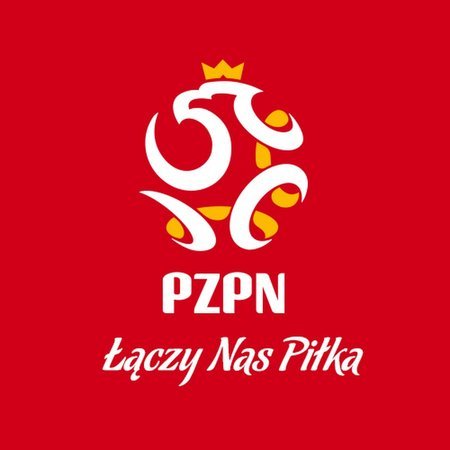 Backfire in the Bundesliga, comeback at Ajax
Backfire in the Bundesliga, comeback at Ajax
From today’s perspective one might well conclude that the transfer was premature or that Milik had made the wrong choice. Given that Bayer Leverkusen played with only a single forward, the young Pole found it hard to successfully compete with Stefan Kiessling. He played rarely, ended up as a substitute, and was loaned out to Augsburg the following season. Over eighteen months spent in the Bundesliga, Milik played in no more than 24 matches, scoring six times. He was able to breathe a deep sigh of relief when he was loaned out to Ajax Amsterdam.
Apart from a long-standing tradition of coaching players, Ajax specialises in seeking out underestimated footballers around the globe. Amsterdam coaches noticed Milik and his potential. And they were not wrong. The Polish forward reawakened in the Netherlands, having become an indispensable player to the young team. Milik emulates Zlatan, “De Telegraaf” reported after one game and another goal by the Pole. High praise in Amsterdam.
Ajax has another policy: once a player reaches world-class level, he is sold for big money. This was true of Zlatan Ibrahimovic several years back, along with many others – it was also true of Milik. The Pole received a few auspicious offers after two good seasons in Amsterdam. The best offer – for the club and player alike – was tabled by Napoli. The Italians offered Ajax thirty-two million euro; Milik was given star status in a team hailing from a city where football is akin to religion.
“The time has come to open a new chapter. Joining such a great team is a great honour. I would like to contribute to Napoli’s history and become a part of it,” said the Polish forward prior to the team’s presentation before the 2016/17 season.
Double knee surgery
Just when it seemed that the boy from Tychy had arrived at his dream club, a club that believed in his potential, two injuries brought him back down to earth. In the course of two seasons, Milik had to bow out for nearly 270 days, having suffered two similar injuries: a rupture of the anterior cruciate ligament, first in the left, then in the right knee. The first one took place during the Polish national squad’s match against Denmark at the National Stadium in October 2016; the other – during a Serie A match in October 2017. Both brought tears and uncertainty as to Milik’s future.
Yet Milik conquered his health issues twice. Gritting his teeth, he underwent a gruelling series of physical therapy sessions, assisted by Remigiusz Rzepka, who was, among others, responsible for the players’ physical condition on the national team. Today, Milik is healthy. He says he wants to be like Ronaldo – the Brazilian – who made a full recovery after similar injuries and went on to play at the World Cup in Korea and Japan. Milik’s goals await him in Napoli and in Poland.
Nobody gave up on the valuable forward – neither at his club nor on the national squad. Everyone is aware of what he is capable of on the pitch when he is healthy. Adam Nawałka’s trust in Milik knows no bounds. In March, just after the forward’s physical therapy came to an end, Nawałka invited him to play in friendly matches against Nigeria and South Korea. The coach believes that the Lewandowski-Milik duo is the Polish team’s greatest weapon.
Because of his injuries, Milik has not yet penned the promised new chapter of his story in Napoli or as part of the Polish national team. He may well write it in Russia.
Author: Olgierd Kwiatkowski
Source: "Rzeczpospolita"

08.06.2018
